
Waste management and recycling is an industry that is always growing as the need, and demand for it increases. We have put together an infographic to show some interesting recycling facts and statistics about the waste industry, how to recycle better at home, and how important recycling really is in the UK :
If you run a blog or website, please feel free to use the recycling facts infographic using the embed code below :
<p><a href="https://ismwaste.co.uk/recycling-facts" title="UK Recycling Infographic" ><img src="https://ismwaste.co.uk/images/recycling/recycling-info2019.png" alt="UK Recycling Infographic" style="width:100%;max-width:800px;"></a><p>UK Recycling Infographic - An infographic by ISM Waste & Recycling <a href="https://ismwaste.co.uk" title="ISM Waste & Recycling">ISM Waste & Recycling</a></p>
Why is Recycling Important? (The Facts)
Recycling provides many benefits, and not only the obvious benefits such as reducing the amount of waste being sent to landfill and reducing the amount of waste that ends up in the oceans killing marine life.
Landfill waste has a huge negative impact on the natural environment. Chemicals and greenhouse gasses such as Carbon Dioxide (CO2) are released from the rubbish in landfill sites and recycling can help us reduce this.
According to statistics provided by gov.uk, the UK produced 222.9 million tonnes of waste in 2016, of which 24.40% of it was sent to landfill (~54 million tonnes) and 48.50% of waste in the UK was recycled. Nearly twice as much waste was recycled than sent to landfill, a significant improvement compared to previous years.
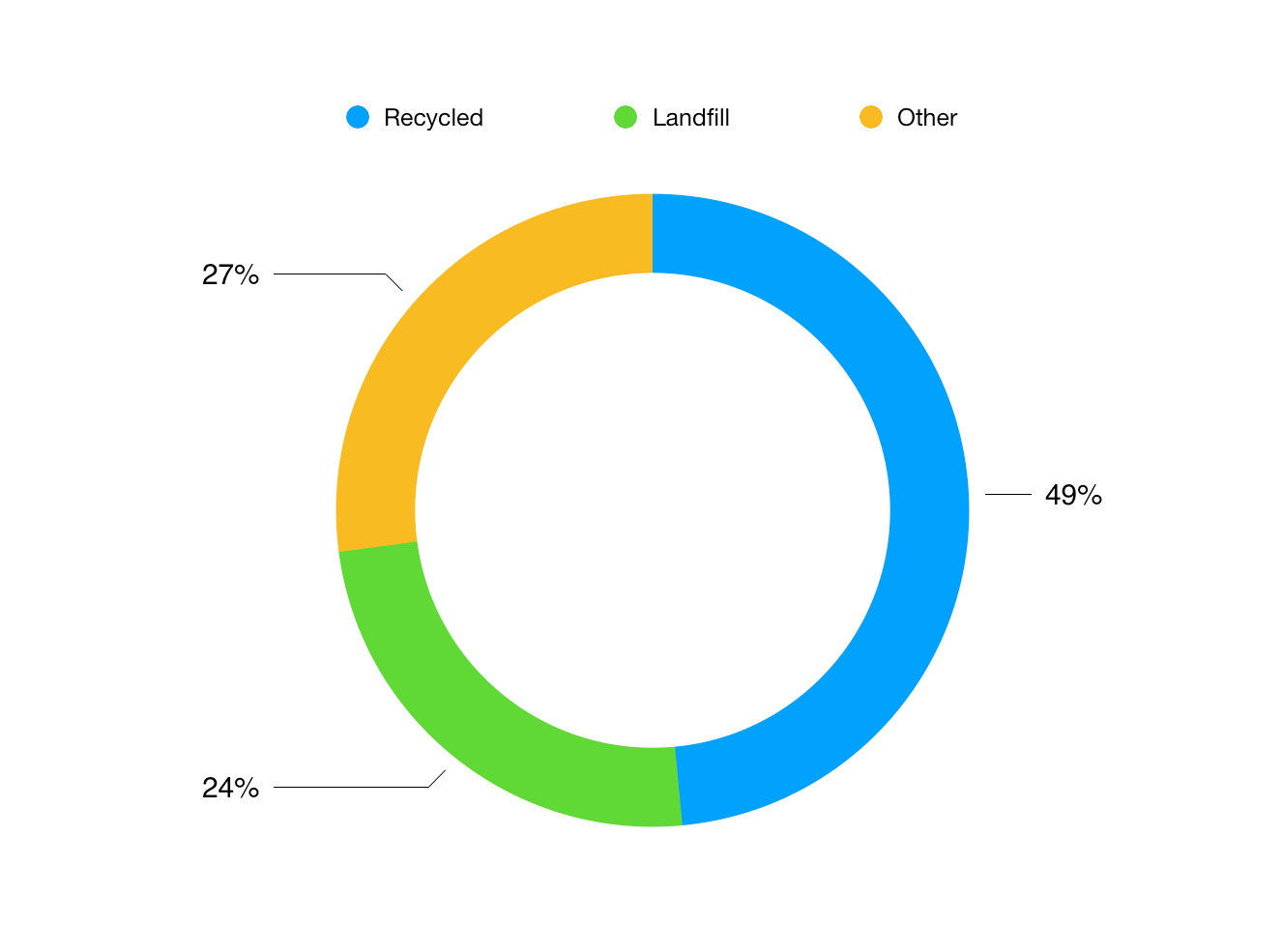
In 2016 out of the UK's 222.9 million tonnes of waste, England was responsible for the majority, producing 85% of the UK’s waste.
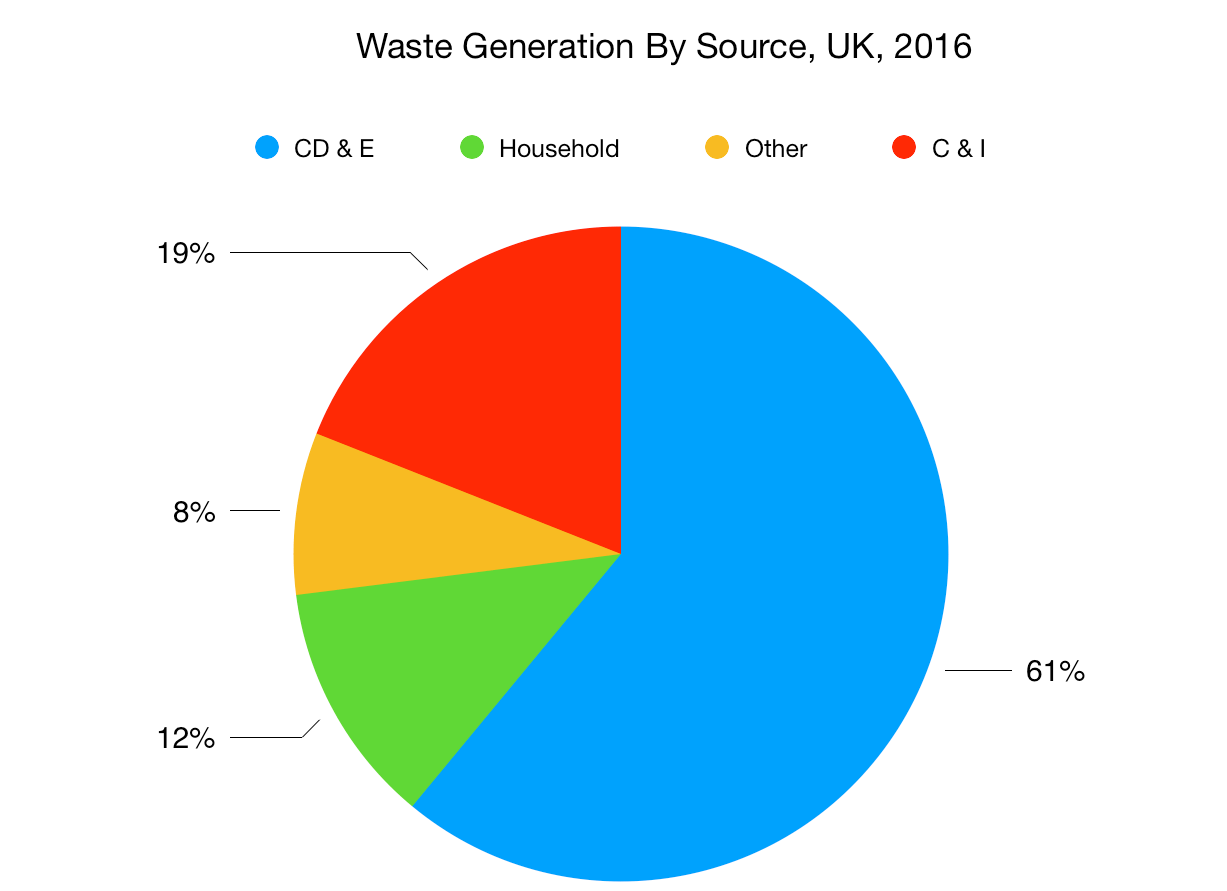
The amount of energy that can be conserved by recycling household products will most likely be very surprising.
As the infographic shows, around 95% less energy is used to make products from recycled materials than using raw materials.
To get an idea of how much energy recycling can conserve, recycling one aluminium drinks can alone, can save enough energy to power a television for around three hours!
Recycling glass bottles is not only important because of the amount of time it takes to fully decompose but like recycling an aluminium can, it also conserves a surprising amount of energy.
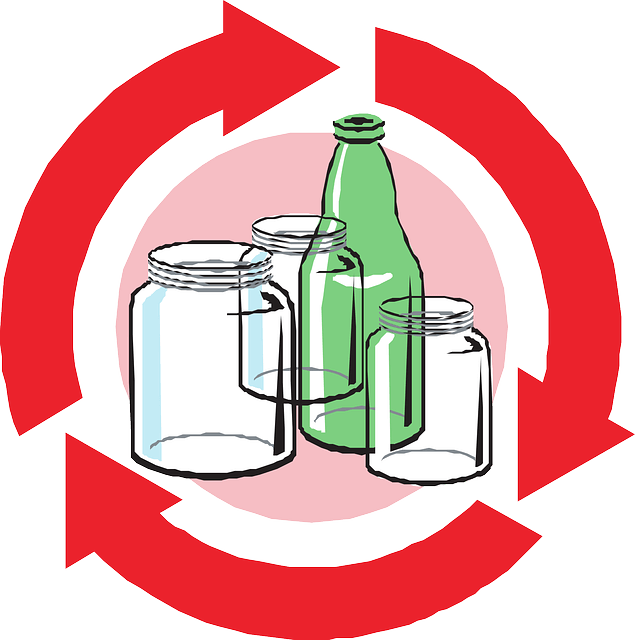
Glass bottles take approximately one million years to fully decompose which is a big issue for landfill sites considering glass is 100% recyclable and never loses any purity or quality when it's recycled. Glass can be reused over and over again and the quality of the glass is as good as if it was made new from the raw materials.
For every glass bottle recycled, enough energy is conserved to power a 60 Watt lightbulb for around four hours and recycling a plastic bottle can conserve enough energy to power a 60 Watt light bulb for even longer, it can conserve enough energy to power a lightbulb for about six hours.
The amount of energy that can be conserved looks even more significant when you look at it on a much larger scale. If everyone in the UK recycled just one more aluminium drinks can each, it would save enough energy to power a train from Leeds to Brighton, and back, 6000 times!
Full landfill sites are the most obvious visual issue our waste creates, There is a lack of enough space to keep putting our waste. Recycling items we'd usually throw in the rubbish to be used over and over again is important so that we reduce the demand for raw materials. Recycling conserves natural resources such as water, minerals, coal, oil, natural gas and timber. Using waste in a productive way by recycling means we can gradually decrease the size of our landfills.

That, in turn, reduces the serious disruption and destruction being done to the natural environment: fewer forests cut down, rivers diverted, wild animals harmed or displaced, and less pollution of water, soil and the air.
Landfill is expensive these days! As the table below shows, the UK's landfill tax is the highest it's ever been and has continued to rise over the last few years. Recycling is a considerably cheaper way of dealing with waste. So the more you recycle, and the less you put in the general waste bin, the more money is saved which is good for households, companies and public services.
| |
From 1 April 2020 | From 1 April 2019 | From 1 April 2018 |
| Standard rate | £94.15 / tonne | £91.35 / tonne | £88.95 / tonne |
| Lower rate | £3/tonne | £2.90/tonne | £2.80/tonne |
We all know recycling at home and in the work place continues to become more important each year, and as the most sustainable method for dealing with our waste it's important to know what actually can be recycled and how it should be recycled.
Tips for Recycling at Home
There are many household items that you may not know can be recycled. Common household items that can be recycled :
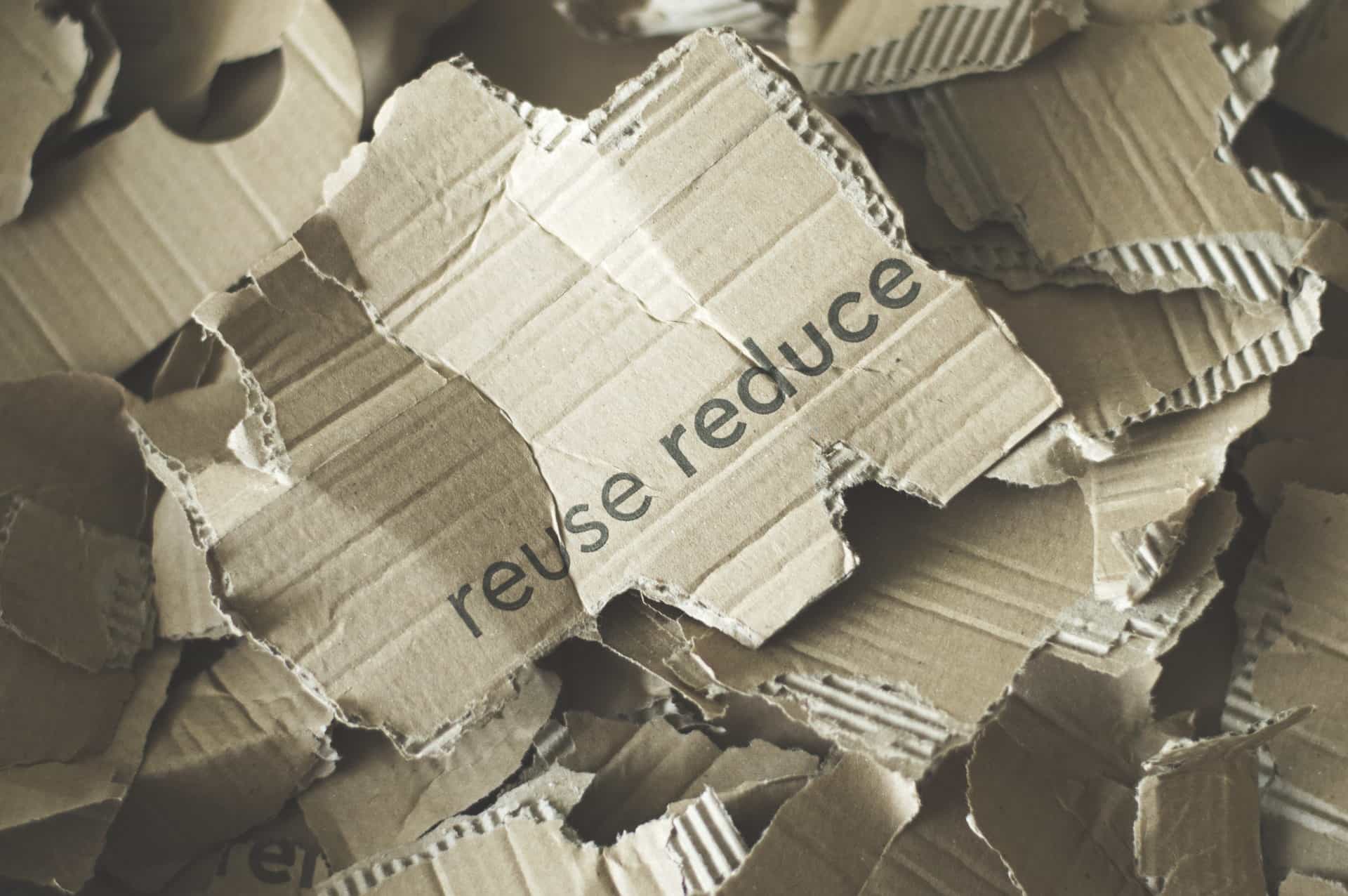
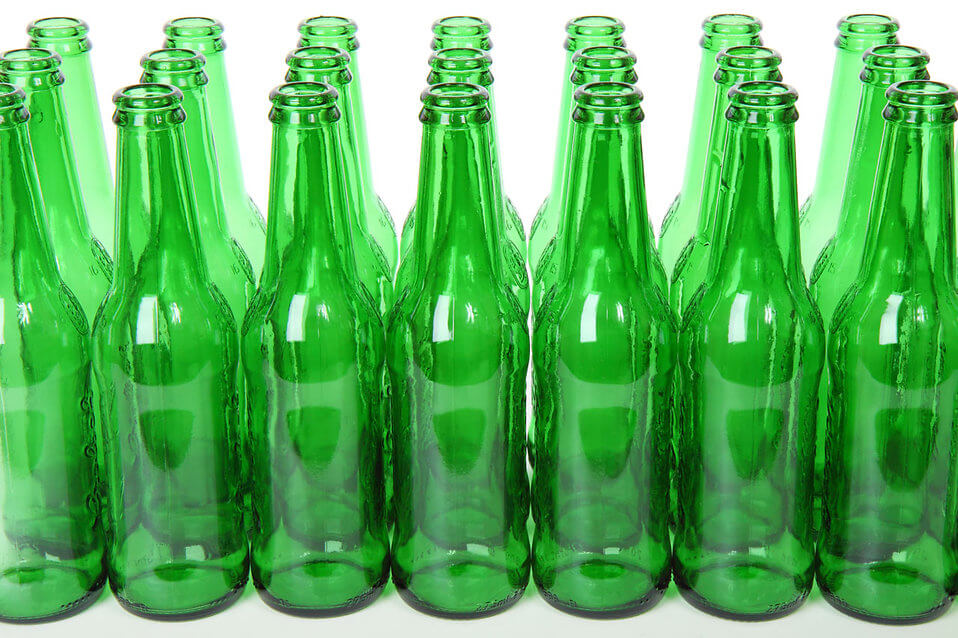
- Electrical and Electronic Equipment (WEEE Goods)
WEEE is waste electrical and electronic equipment. It is end-of-life electrical and electronic equipment and covers virtually everything with a plug or battery.
Category 1 - large household appliances eg. fridges and washing machines
Category 2 - small household appliances eg. toasters and clocks
Category 3 - IT and telecommunications equipment eg. computers and and phones
Category 4 - consumer equipment eg. TVs and radios
Category 5 - lighting equipment eg. fluorescent lamps and non-household luminaires
Category 6 - electrical and electronic tools eg. drills and lawnmowers
Category 7 - toys, leisure and sports equipment
Category 8 - medical devices eg. dialysis machines
Category 9 - monitoring and control instruments eg. smoke detectors and thermostats
Category 10 - automatic dispensers eg. drinks, food and money dispensers
- Toilet roll tubes
Toilet paper and paper towels cannot be recycled, but the cardboard tubes can be recycled. Cardboard is widely recycled throughout the UK in household collections and at collection points.
- Plastic bottles
When it comes to recycling plastic there is often confusion about which plastics can be recycled, but in the majority of cases, plastic bottles can be recycled. Plastic bottles can be put in the blue recycling bin, or taken to recycling centres and collection points.
- Soap bottles
Like the majority of other plastic bottles, soap bottles can be recycled. Plastic soap bottles are commonly recycled in the UK but you need to make sure they are empty, throw away the tops, rinse out the remaining contents of the bottles and they are ready to recycle.
- Glass bottles
Drinks bottles of any colour can be recycled (green, brown and clear), such as wine bottles and beer bottles. There are also less obvious non-food bottles that we have around the house that can be recycled such as perfume and aftershave bottles.
- Food cans
Metal packaging is widely recycled throughout the UK. Once empty and rinsed, food cans are ready for recycling, the labels can be left on, they are removed in the recycling process.
- Milk cartons
Drinks cartons are made out of plastic and paper, both of which are recyclable materials. The plastic caps should be left on the cartons as they are removed in the recycling process.
- Books
Being made out of paper, you'd have thought books can be recycled but unfortunately, they cannot because of the glue that is used to bind the pages. However they can be reused, old books can be donated to charity shops, libraries or schools.
- Newspapers
Almost all form of clean/uncontaminated paper can be recycled. Newspapers can be recycled either in reclining bins or collection points.
- Batteries
All household batteries can be recycled at recycling centres such as watch batteries, laptop, and phone batteries.
- Cardboard
Most uncontaminated cardboard is recyclable and used for many different types of packaging around the house. Recyclable cardboard includes cereal boxes, shoe boxes, and packaging.
Tips for Recycling at Work
It's common for people to find it more natural to recycle at home than in the workplace. Maybe it is because we put our own recycling schemes and systems in place at home and, because of less frequent general waste collections by the council we are more conscious of the need to recycle at home.
On a daily basis, we use various materials and equipment in the workplace that can be recycled. Over 90% of office waste is recyclable!
- Electrical equipment
We use a lot of electronic equipment in the workplace and a lot of us are replacing our electronic devices every year. The majority of end-of-life electrical and electronic equipment can be recycled.
- Use Re-usable Containers
When bringing lunch to work, pack it in reusable containers and use silverware rather than using single-use plastic alternatives.
- Think before you print
Do you really need a paper copy? Could it be emailed instead?
- Explore ways to reduce and/or reuse office equipment
Stationery, toners/ink cartridges, paper, cardboard, furniture, etc.
- Waste management duty of care
The Code of Practice applies to you if you produce, carry, keep, dispose of, treat, import or have control of waste in England or Wales.
Recycling Symbols Explained
It's important to know how to recycle your household products properly to ensure all the recyclable materials can be recycled. Different types of items will need to be prepared for recycling differently and there will be labels on the products explaining how to recycle them. The most common labels found on household products are :
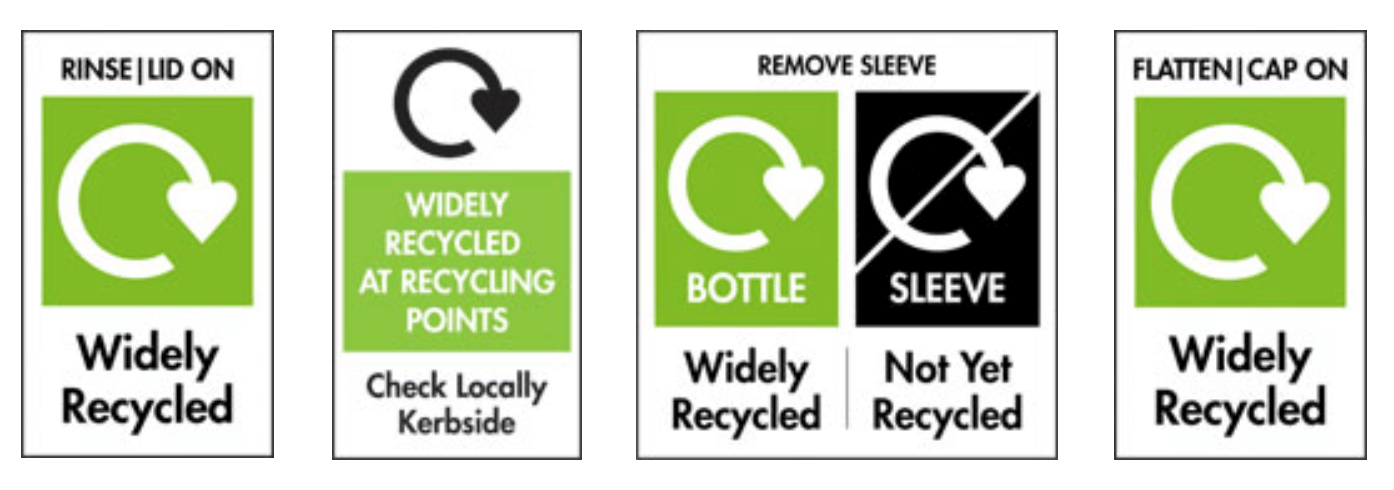
- Widely Recycled
This label is applied to packaging that is collected by over 75% of local authorities across the UK. An example of a product that will have this label on is plastic bottles.
- Widely Recycled ( Flatten | Cap On )
This symbol is commonly put on larger products to create more space in your recycling as well as more space in the transportation of recycling. By placing the lids back on can also make sure it does not refill with air.
- Widely Recycled Rinse
This symbol means that provided you rinse out your packaging, it can be recycled. This is to ensure it does not contaminate other recycling products and to prevent vermin contaminating the recycling plant.
- Widely Recycled - Rinse, Lid On
Once you have rinsed out your product sometimes it requires you to put a lid back on. This might be for items where the lids are too small and will fall through holes in the sorting process. The lids are then separated and recycled elsewhere.
- Sleeve - Widely Recycled, Film - Not Yet Recycled
This symbol, which you may find on a ready meal example, means that the sleeve itself is recyclable and the film is not recyclable and needs to be removed and put into the general waste.
- Check Locally
This means that only some specific local authorities collect and recycle this type of material.
- Not Yet Recycled
This symbol does exactly what it says on the tin. It cannot be recycled yet and less than 20% of local authorities collect it across the UK.
FAIR USE STATEMENT
We're excited that you want to share our recycling infographic on your site for noncommercial use to spread environmental awareness and help your readers be more aware of how important recycling is for the environment. We only ask that you include a link back to this page, to credit our work.
If you run a blog or website, please feel free to use the image using the embed code below :
<p><a href="https://ismwaste.co.uk/recycling-facts" title="UK Recycling Infographic" ><img src="https://ismwaste.co.uk/images/recycling/recycling-info2019.png" alt="UK Recycling Infographic" style="width: 100%; max-width:800px;"></a>
<p>UK Recycling Infographic - An infographic by ISM Waste & Recycling <a href="https://ismwaste.co.uk" title="ISM Waste & Recycling">ISM Waste & Recycling</a></p>
ISM Waste & Recycling
ISM Waste & Recycling provide waste management, skip hire, recycling and specialist waste services throughout the North West of England, for both commercial and domestic customers. Call us today on 01706 823001 for more information about our services.
Waste Management Services
Source
Written by James Kay
james.kay@ismwaste.co.uk
